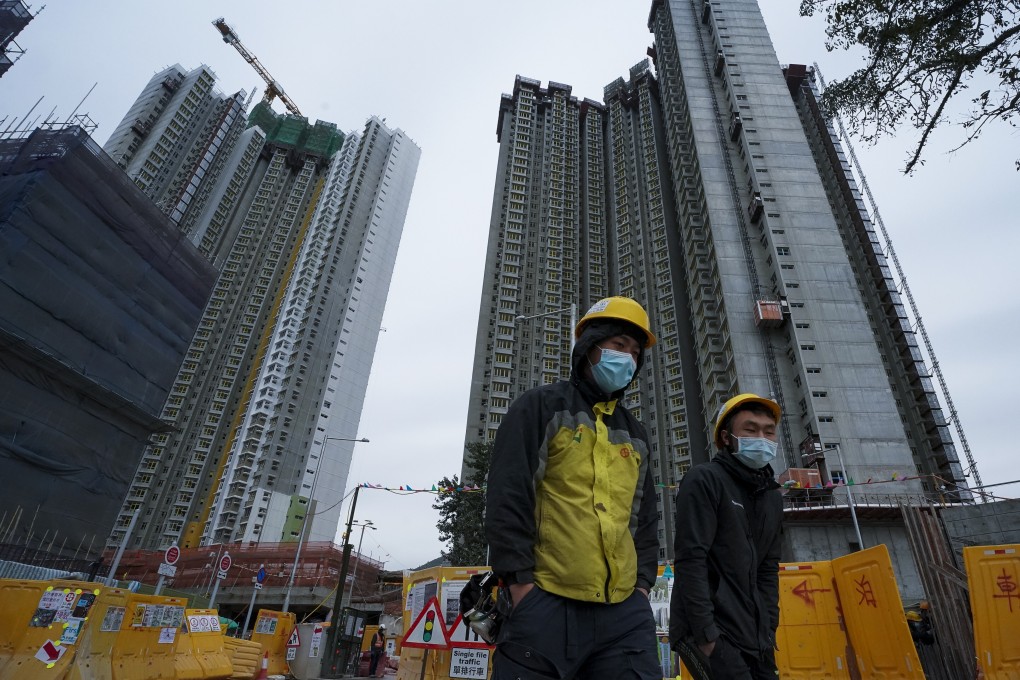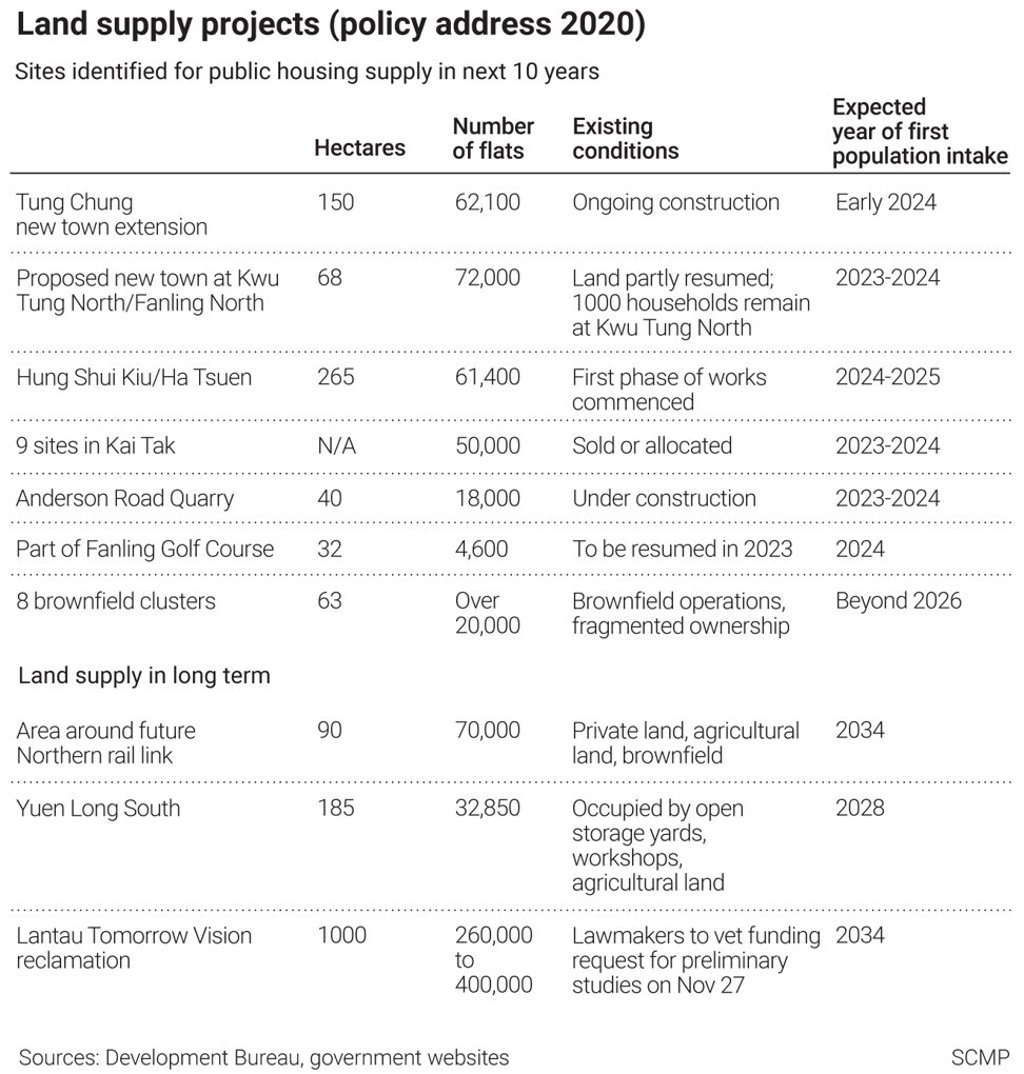Concrete Analysis | How Carrie Lam can revitalise Hong Kong’s land supply and public housing targets in next decade
- At present, land resumption seems to be the most feasible way to overcome the acute land supply shortage
- To achieve a win-win outcome in public-private collaboration, the development of agricultural land or brownfield sites should be reinforced

Through her annual policy address, Chief Executive Carrie Lam Cheng Yuet-ngor has highlighted the government’s awareness on the severity and urgency of public housing supply in Hong Kong.
In 2019, she announced a plan to invoke the Land Resumption Ordinance to resume three types of private land for developing public housing and so-called “Starter Homes.” In 2020, she identified 330 hectares (815 acres) of land for the purpose, and said demand for 301,000 units under the official Long-Term Housing Strategy for the next 10 years can be met.
The land supply will mainly come through New Development Areas, part of the Fanling Golf Course and various brownfield clusters, which possess development potentials and rezoned sites reserved for public housing development.
Last October, 11.8 hectares of land was resumed for the implementation of the first phase development of Hung Shui Kiu-Ha Tsuen New Development Area, reserving lots of time and effort in achieving the overall 441 hectares development area in three phases through 2037.

Most of the government’s proposed plans on increasing land supply will take over 10 years, before they can be realised. At present, land resumption seems to be the most feasible way to overcome the acute shortage.
